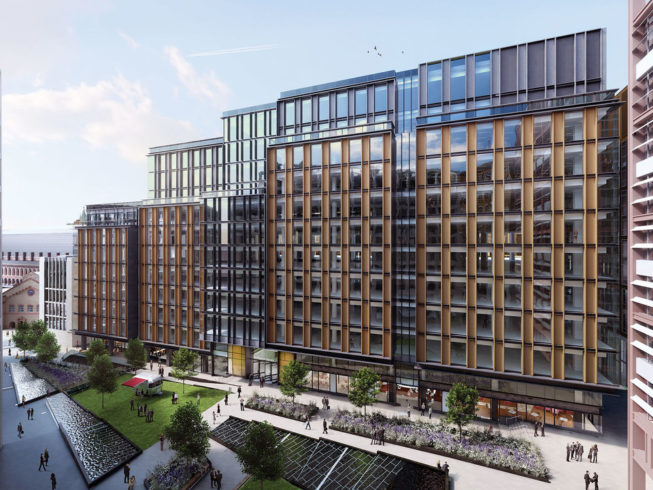Already a member? Sign in below

As part of this broader global sustainability strategy, Google has undertaken significant work to make their offices more environmentally friendly.
Over 13 million square feet of Google office space is LEED (Leadership in Energy and Environmental Design) certified, 28% of which achieved the most challenging Platinum certification. This includes Google’s 6 Pancras Square office in London, which achieved both a LEED Platinum certification (LEED 2009 Commercial Interiors category) and the first ILFI (International Living Future Institute) Zero Carbon certification in the world.
Google has also calculated that 6.6 million pounds of food waste has been prevented in their cafes globally since 2014. Also, by the end of 2018, 12 of Google’s top 25 office sites were on track to reduce single-use beverages per seated headcount by 20% relative to a 2017 baseline.
Beyond offices, Google has been working to develop a more environmentally responsible supply chain. In 2018, Google identified more than 170 potential energy-efficiency measures, with more than $13 million in annual savings potential. Energy efficient measures with the most savings include replacing high-density lighting with LED lighting, optimising and automating chilled water distribution systems, replacing outdates chillers and other major equipment, and implementing fully integrated building management systems.
In September 2020, Google announced renewed investments in sustainability as they entered their third decade of climate action to help build a carbon-free future for everyone. This includes eliminating their operational carbon legacy since founding, aiming to operate on 24/7 carbon-free energy by 2030, and investing in technology to help partners, cities, and people live more sustainably.
Already a member? Sign in below
If your company is already a member, register your email address now to be able to access our exclusive member-only content.
If your company would like to become a member, please visit our Front Foot page for more details.
Enter your email address to receive a link to reset your password
Your password needs to be at least seven characters. Mixing upper and lower case, numbers and symbols like ! " ? $ % ^ & ) will make it stronger.
If your company is already a member, register your account now to be able to access our exclusive member-only content.